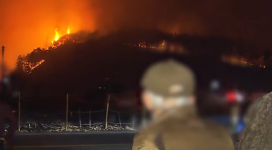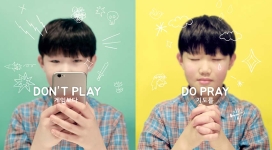Following a year of heightened racial tension, Southern Baptist leaders are emphasizing the need for more integration in their congregations, arguing that racial justice in society must start with the church.
"In the church, a black Christian and a white Christian are brothers and sisters," Southern Baptist Ethics and Religious Liberty Commission leader Rev. Russell Moore wrote.
"We care what happens to the other, because when one part of the Body hurts, the whole Body hurts. ...When we know one another as brothers and sisters, we will start to stand up and speak up for one another."
Rev. Moore, whose comments were made in the wake of unrest spurred by the killings of black men by white police officers in Ferguson, Missouri, and New York City, will also head "The Gospel and Racial Reconciliation" summit, which will be held this spring.
Yahoo News reports that Rev. Moore's goals for the summit are simple: encourage churches to work for reconciliation by articulating it as a Gospel demand, and facilitating personal relationships between Southern Baptists of different races.
"The church lacks the moral authority to address the world about race before we set our own house in order," Rev. Dwight McKissic, a black Southern Baptist pastor in Arlington, Texas, explained to the AP.
According to the Huffington Post, the Southern Baptist church holds a sinister history in regards to racial segregation. During the civil rights movement, many of the denomination's leaders actively opposed ending segregation, and it wasn't until recently that the church repented for condoning racism and apologized to African-Americans.
Additionally, in 2012, just 20% of the church's 51,000 congregations were non-white, but less than 1% were multi-ethnic.
"My grief is we're late to this party," Southeastern Baptist Theological Seminary President Danny Akin told the AP. "We should have been leading the way. The Christian church should be the first to speak to issues of discrimination and injustice ... not sitting back."
Rev.Bryan Carter, a black pastor in South Dallas, emphasized that ultimately, racism both within and outside the church is a direct result of sin, and thus cannot be reconciled without the healing power of the Gospel.
"The truth of the matter is that we are all sinful, and we are all broken. Out of that brokenness, we are divided racially, economically, culturally, socially and geographically. It is the gospel that becomes that central point of reconciliation," Carter said during a Jan. 24 conference on racial reconciliation.
"If there is ever going to be transformation in our city, if we're going to see the racial divide in our city bridged in our city, it is going to happen because the gospel gets ahold of each of us. It's going to happen in my life, and I'm going to realize I've got a new identity in Christ. I'm going to love others without any love in return because all the love I need I've already found in Christ."








